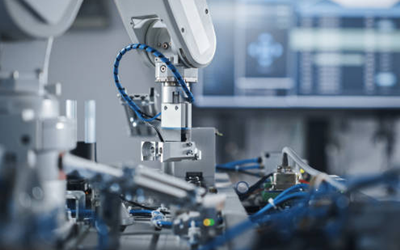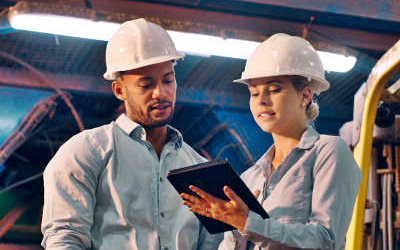Courses


 Compare
Compare
Brief Description of Electrical and Electronics Engineering Electrical and Electronics Engineering (EEE) is a dynamic field focused on the study, design, and application of electrical systems, circuits, and electronic devices. This discipline encompasses a wide range of technologies and principles that enable the generation, transmission, distribution, and utilization of electrical energy. Students will explore fundamental concepts of electrical engineering, including circuit theory, signal processing, control systems, and microelectronics. Applications of EEE are diverse and impactful, ranging from power generation and distribution to telecommunications, consumer electronics, renewable energy systems, and automation technologies. Students will gain hands-on experience with various tools and technologies, preparing them for careers in industries that drive innovation and improve everyday life. Throughout the program, students can expect to learn: Fundamentals of Circuit Design: Analyzing and designing electrical circuits using various components. Electromagnetic Theory: Understanding the principles of electromagnetism and their applications in devices and systems. Signal Processing: Techniques for analyzing and manipulating signals for effective communication. Power Systems: Principles of power generation, transmission, and distribution, with a focus on renewable energy sources. Automation and Control: Designing systems for automated processes, enhancing efficiency in various industries. This comprehensive education equips students with the skills necessary to excel in a rapidly evolving technological landscape.
₦50000
0 Lessons
Hours

 Compare
Compare
The Mechanical Engineering course offers a comprehensive study of the design, development, and manufacturing of mechanical systems and devices. It provides a solid foundation in core engineering principles, including mechanics, thermodynamics, materials science, and fluid dynamics. Students learn to design and analyze components, machines, and systems, focusing on real-world applications in diverse industries such as automotive, aerospace, robotics, manufacturing, energy, and HVAC systems. Emphasizing hands-on learning and advanced simulations, the course covers CAD modeling, prototyping, and precision manufacturing processes. Additionally, students explore innovations in automation, renewable energy solutions, and thermal management systems, preparing them to tackle contemporary challenges in sustainable design and high-efficiency engineering. The course integrates cutting-edge technology and industry standards, equipping graduates with the technical skills and problem-solving capabilities needed for success in a dynamic and evolving field.
3 Lessons
Hours

 Compare
Compare
Studying Engineering Courses at Curtis Engineering Academy Engineering courses are vital in today's industry because they drive innovation, problem-solving, and sustainable development. Engineers design solutions for challenges like infrastructure, energy, water supply, and digital transformation, making them central to advancing technology and improving quality of life. The demand for engineers spans sectors such as renewable energy, artificial intelligence, and water management, highlighting their importance in adapting to climate change and evolving digital economies. Studying Engineering at Curtis Engineering Academy offers a unique advantage, combining technical expertise with hands-on training and research. The Academy's commitment to cutting-edge facilities and global partnerships ensures that students gain industry-relevant skills and access to advanced technologies. Curtis Engineering Academy aims to bridge the gap between academia and practical application, preparing graduates to be leaders in engineering innovation and contributing to sustainable solutions for local and global challenges.
0 Lessons
Hours